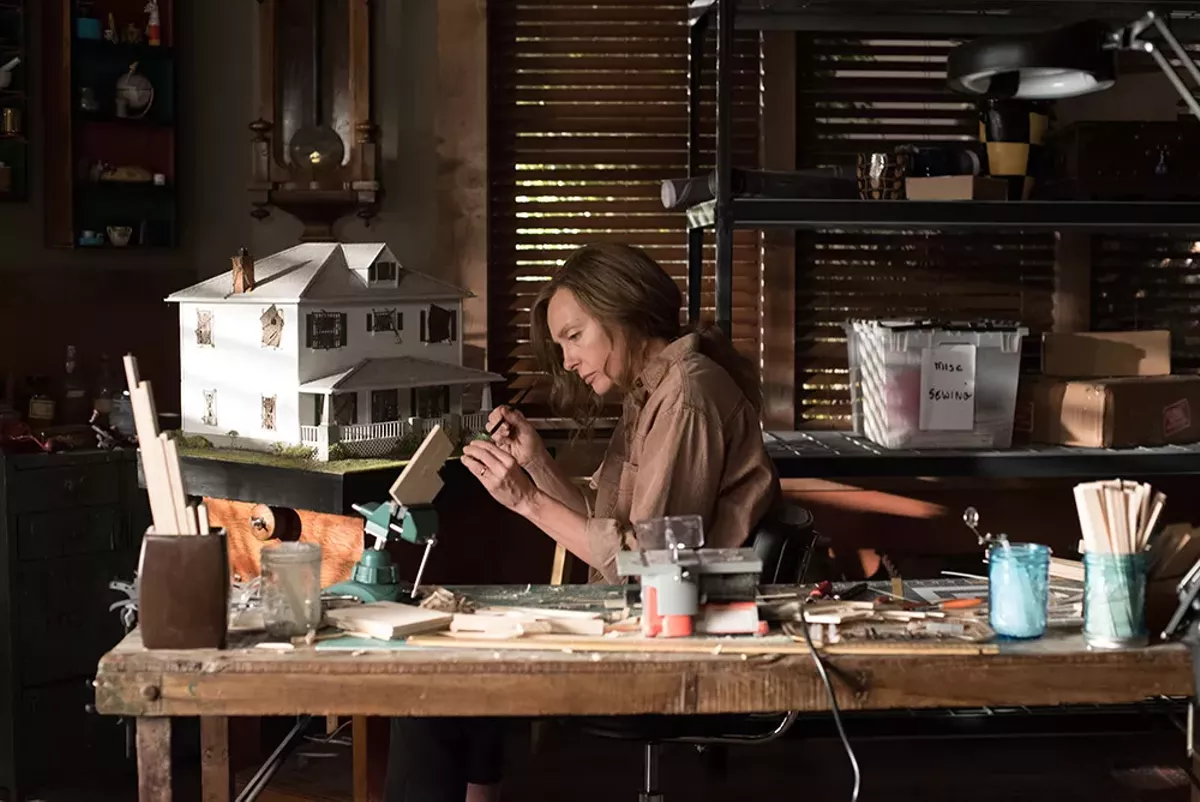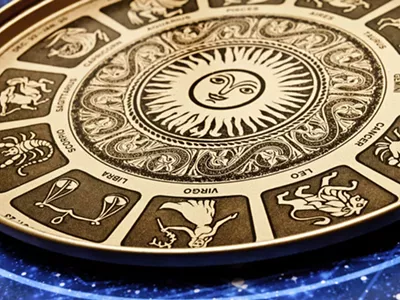A bird flies into a window, leaving a splatter of blood. Inanimate objects move seemingly on their own during a seance. Ghostly shapes hover in the deep shadows of a dark and miserable house. Mysterious figures wave ominously from across a yawning distance. A child repeatedly makes an annoying clicking noise with her mouth.
I don't scare easily, and it takes a helluva lot more — and a helluva lot different — than what Hereditary is offering, the bones which are nothing we haven't seen plenty before. Yes, writer-director Ari Aster, making his feature debut, has elevated some familiar tricks of the horror genre to a place of terrible grace, but that's nowhere near enough. The sinister ambiance of Hereditary is effective... but that's not a story, and dragging out that morbid atmosphere long past its welcome can't hide that.
As a portrait in grief and guilt, Hereditary is raw and honest in a way that eventually works against the supernatural horror that is also at play here. Toni Collette is absolutely extraordinary as Annie Graham, a woman struggling with the fact that the death of her mother doesn't have her as upset as she is "supposed" to be. They were estranged, and her mother was a difficult woman, secretive and manipulative, the latter particularly with regard to Annie's 13-year-old daughter, Charlie (Milly Shapiro). Annie tries to comfort the heartbroken girl with the reminder that she was Grandma's "favorite," but to others Annie describes the relationship in more aggressive and unpleasant terms, her mother with her "hooks" in the child. Annie is also deeply conflicted about her own motherhood, perhaps because of her relationship with her mother, though that's not clear... and in fact, Hereditary's gloss on the darker taboos about motherhood that women don't speak of, at least not in pop culture, is more strained. It plays like it was constructed by a man who has heard women complain about motherhood without really understanding why they're unhappy — though it did gift us with the spellbinding scene in which Annie screams in forbidden frustration and rage at her older teen son, Peter (Alex Wolff, one of the most interesting young actors starting to make a splash), which is probably her Oscar clip right there.
It's hardly a surprise when the film begins to suggest that the weirdness of Annie's mother may have had a fantastical malevolent bent to it, but it is something of a disappointment. The haunting of Annie's family — which also includes her husband, Steve (Gabriel Byrne) — spreads beyond her, and their collective shame and self-reproach, their sorrow and suffering, ceases to be a metaphor and settles into concrete reality. Yet while Aster has no interest in ambiguity regarding what Annie's mother was up to and what spectral evil it has brought down upon Annie's family, he also doesn't want to be too specific about it, either. As happens so often in movies with speculative elements, Hereditary ends precisely when it might have found something original to say, just at the moment when its speculation gets really intriguing. Aster seems not to quite know what to do with the kernel of his idea, and after taking an overly indulgent time turning it over, he rushes to an ending that doesn't satisfy. The question of "Wait, how did we get here?" battles with "Wait, but what next?" But there's no next.
Aster startles with some provocative imagery: a shot of the exterior of the Graham house, nestled in a grim woods, flips from day to night like someone turned an electrical switch, which is more unsettling than it sounds. But often, again, it seems like he fails to realize the power he's playing with: Annie's work as an artist crafting miniature diorama scenarios from her own life, of her house and of her family, is ripe with potential to suggest other planes of existence, which would have been perfectly apropros to the larger story, yet not even a suggestion of such ever manifests. The overwhelming emotion Hereditary left me with, then, is not shock or terror, but irritation and exasperation. I can see how this could have been a great film, and I can see where it went off the rails.
Get our top picks for the best events in Detroit every Thursday morning. Sign up for our events newsletter.








